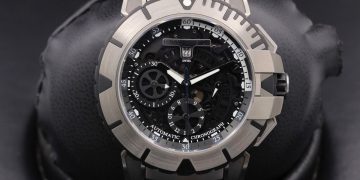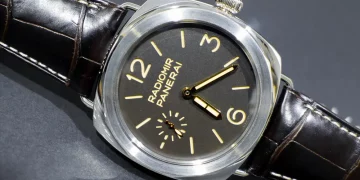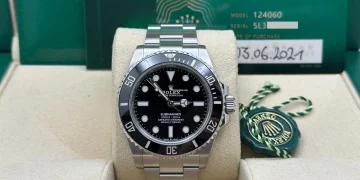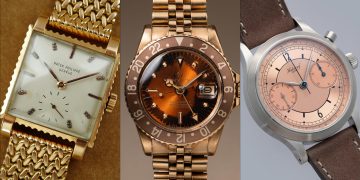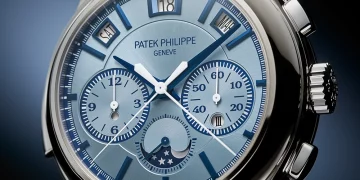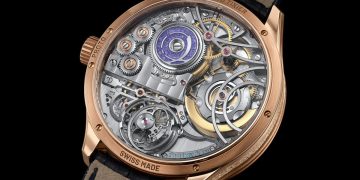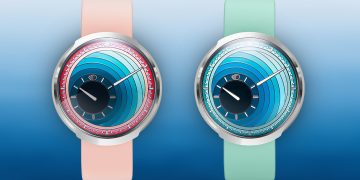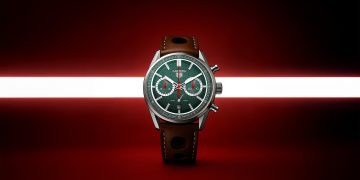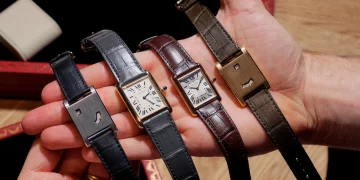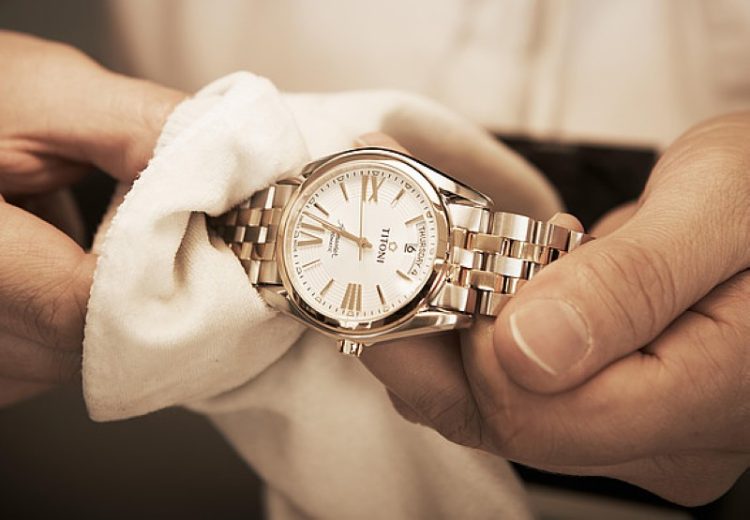Mechanical watches are marvels of craftsmanship, precision, and intricate engineering. Unlike their quartz counterparts, which rely on electronic components to regulate time, mechanical watches rely on a complex system of gears, springs, and other mechanical elements to keep time. As such, ensuring their long-term accuracy and stability requires attention to maintenance, proper handling, and understanding the mechanics involved.
In this article, we will explore several ways to ensure the long-term accuracy and stability of mechanical watches, addressing key aspects such as regular servicing, proper storage, wearing habits, and the environmental factors that affect a watch’s performance.
1. Understanding the Mechanics of a Mechanical Watch
To appreciate how to care for a mechanical watch, it is essential to first understand its core components. A mechanical watch is powered by a mainspring, which stores energy. This energy is then released gradually to power the escapement mechanism, which controls the movement of the gears and hands. A balance wheel and hairspring regulate the flow of this energy, which determines the watch’s timekeeping accuracy.
Given this intricate system, the accuracy and stability of a mechanical watch depend on the precise interaction of its parts, as well as its ability to maintain consistent performance over time. Regular maintenance, adjustments, and careful handling are crucial in preserving the watch’s functionality.
2. Regular Servicing and Maintenance
Like any fine piece of machinery, a mechanical watch requires periodic servicing to maintain its accuracy and performance. Most watchmakers recommend a full service every 3 to 5 years, depending on the brand, model, and usage conditions. Here are some key elements to consider when servicing a mechanical watch:
a. Lubrication of the Movement
Over time, the lubricants inside the watch movement may break down or dry out, which can lead to increased friction, irregular movements, and eventually a loss of accuracy. During a service, a professional watchmaker will disassemble the movement, clean each part, and reapply lubrication to the necessary components. This ensures that the watch continues to function smoothly and reliably.
b. Regulation of Timekeeping
A professional service also involves adjusting the movement to ensure it keeps accurate time. Watches can experience small fluctuations in their timekeeping due to changes in temperature, position, or wear. Watchmakers use highly specialized equipment to test the movement and fine-tune it to ensure it meets the manufacturer’s specified accuracy. This process is known as regulation.
c. Replacement of Worn Parts
Over time, certain parts of the movement, such as the mainspring or escapement components, may wear out. A full service includes inspecting all parts for wear and replacing any components that show signs of damage or excessive wear. This helps maintain the stability and longevity of the watch.
3. Proper Storage to Prevent Damage
Proper storage is essential to maintaining the accuracy and condition of a mechanical watch. Improper storage can lead to a range of issues, such as magnetization, dust contamination, or physical damage. Here are some tips for ensuring your mechanical watch stays in optimal condition:
a. Avoid Exposure to Magnets
Magnetism is one of the most common causes of timekeeping inaccuracy in mechanical watches. Even a small magnet can disrupt the magnetic field of the watch’s escapement, causing it to run fast or slow. To avoid this, it’s important to keep your watch away from magnets, such as those found in electronic devices, speakers, and certain tools. Many watches are designed with anti-magnetic properties, but it’s still wise to be cautious.
b. Store in a Safe, Dry Place
Moisture and extreme temperatures can cause damage to the movement and other components of a mechanical watch. To avoid rust and corrosion, store your watch in a dry, cool environment. A watch box or winder is a good option for keeping your watch safe when not in use. A watch winder is especially useful for automatic watches, as it keeps them wound and ensures the movement remains properly lubricated.
c. Use a Watch Winder for Automatic Watches
For automatic mechanical watches, it’s important to maintain consistent movement when the watch is not being worn. A watch winder is a device that keeps the watch ticking by simulating the motion of the wrist. This prevents the mainspring from running out of power and helps maintain accuracy. Watch winders are especially helpful for watches with complicated movements or those that are only worn occasionally.
4. Wearing Habits and Careful Handling
Wearing your watch regularly can help maintain its accuracy and stability. However, how you wear it also affects its performance. Here are some tips to ensure your watch remains in good condition:
a. Avoid Shocks and Impact
Mechanical watches are susceptible to shocks and sudden impacts, which can disrupt the movement or damage delicate components. Be mindful of situations where the watch might be exposed to sudden jolts, such as sports activities, heavy lifting, or striking the watch against hard surfaces. If you participate in activities that involve high levels of impact, consider investing in a rugged or shock-resistant watch.
b. Maintain a Consistent Wearing Schedule
Automatic mechanical watches rely on the motion of the wearer’s wrist to wind the mainspring and keep the watch running. If you wear the watch regularly, it will stay wound and continue to function properly. However, if the watch is left unworn for long periods, it may stop. To avoid this, consider rotating between watches or using a watch winder to maintain the watch’s power reserve.
c. Adjust the Time Correctly
When adjusting the time on a mechanical watch, it’s important to follow the proper procedure to avoid damaging the movement. Most mechanical watches should be adjusted by pulling the crown to the correct position and rotating it in the direction specified by the manufacturer. Avoid changing the date or time when the watch is set between 8 PM and 4 AM, as the date-change mechanism may be engaged and could cause damage to the movement.
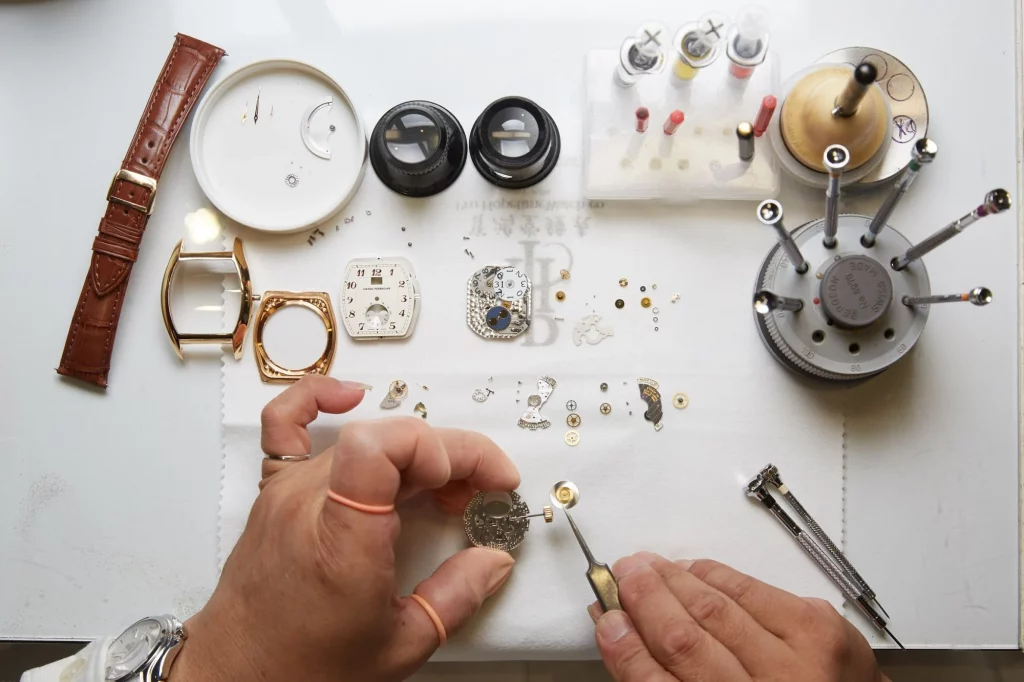
5. Environmental Factors Affecting Accuracy
The performance of a mechanical watch can be influenced by external factors such as temperature, humidity, and altitude. Understanding how these elements can affect your watch is key to ensuring its long-term stability.
a. Temperature Variations
Temperature fluctuations can affect the accuracy of a mechanical watch. As the temperature changes, the metal parts of the movement expand or contract, which can cause small variations in the timekeeping. Some watches, especially those with temperature-compensating balance springs, are designed to minimize these effects. However, it’s best to avoid exposing your watch to extreme heat or cold, such as leaving it in direct sunlight or placing it near a heater or air conditioner.
b. Humidity and Water Resistance
Humidity can cause the internal components of a watch to rust or corrode, especially if the watch is not properly sealed. Many modern mechanical watches come with a degree of water resistance, but it’s essential to know the limits of your watch’s resistance and avoid exposing it to water if it’s not designed for such conditions. Regularly inspect the watch’s gaskets and seals to ensure they are intact and effective at preventing moisture from entering.
c. Altitude and Air Pressure
Some mechanical watches, especially those with barometric pressure functions (altimeters), may be affected by changes in altitude. If you frequently travel to different altitudes, consider the potential effects on the accuracy of your watch. Additionally, some watches may have complications like chronographs or calendar functions that could require recalibration due to air pressure or other altitude-related changes.
6. Choosing a High-Quality Mechanical Watch
The foundation for ensuring long-term accuracy and stability starts with choosing a high-quality watch. Brands that invest in the finest materials, superior craftsmanship, and reliable movements are more likely to produce timepieces that perform well over the long term. Look for watches that have undergone COSC certification or similar testing for accuracy, as this guarantees that the watch has passed stringent quality control measures.
7. Conclusion
Ensuring the long-term accuracy and stability of a mechanical watch requires a combination of regular maintenance, proper care, and attention to external factors. By adhering to recommended servicing intervals, handling the watch with care, and storing it properly, you can preserve its functionality and enjoy precise timekeeping for years to come. Mechanical watches are intricate devices that demand respect and attention, but with the right practices, they can continue to be reliable and accurate companions for generations.



